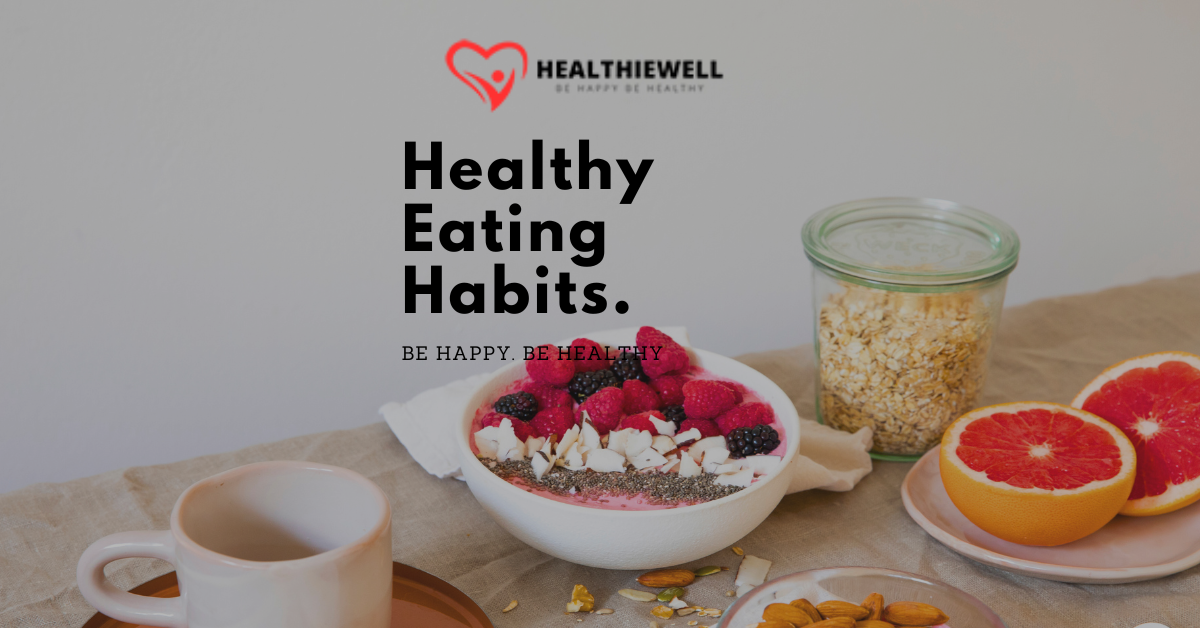We will explore the concept of healthy eating habits and their significance in maintaining overall well-being. Healthy eating is a fundamental pillar of a balanced lifestyle, promoting good physical and mental health. By adopting healthy eating habits, individuals can improve their energy levels, manage weight, reduce the risk of chronic diseases, and enhance their overall quality of life.
Read more : Developing grip strength with sweaty hands when doing pull-ups
Definition of Healthy Eating:
Define healthy eating as a practice of consuming a variety of nutritious foods in appropriate portions to meet the body’s nutritional needs.
Emphasize the importance of balance, moderation, and portion control in maintaining a healthy diet.
Benefits of Healthy Eating:
- Discuss the various advantages of healthy eating, such as improved energy levels, enhanced cognitive function, and better mood.
- Highlight the role of healthy eating in weight management and reducing the risk of obesity-related diseases, including diabetes, heart disease, and certain cancers.
- Address the positive impact of a healthy diet on overall longevity and a strengthened immune system.
Components of a Healthy Diet:
- Explain the essential components of a healthy diet, including fruits, vegetables, whole grains, lean proteins, and healthy fats.
- Emphasize the importance of including a wide variety of nutrient-dense foods in daily meals.
- Discuss the significance of proper hydration and limiting the consumption of added sugars, sodium, and processed foods.
Strategies for Developing Healthy Eating Habits:
Provide practical tips for adopting and maintaining healthy eating habits, such as meal planning, mindful eating, and portion control.
Discuss the importance of reading food labels and being aware of nutritional information.
Encourage the inclusion of family and friends in the journey towards healthier eating habits for support and accountability.
Read more : Why are bodyweight exercises harder than weights?
Benefits of Weight Loss:
- Explore the positive impact of weight loss on overall health, including reduced risk of chronic diseases and improved mobility.
- Discuss the connection between weight loss and increased self-esteem and body confidence.
- Provide tips on healthy and sustainable weight loss strategies, such as regular exercise and balanced nutrition.
Mindful Eating:
- Define mindful eating and its benefits in promoting a healthier relationship with food.
- Discuss techniques for practicing mindful eating, such as slowing down while eating, savoring flavors, and listening to hunger and fullness cues.
- Highlight how mindful eating can help with portion control and preventing overeating.
Healthy Snack Ideas:
- Share a variety of nutritious snack options that are convenient and satisfying.
- Include examples of snacks that incorporate fruits, vegetables, whole grains, and lean proteins.
- Provide tips for preparing and pre-portioning snacks in advance for easy access during busy days.
Healthy Cooking Tips:
- Offer guidelines for healthier cooking methods, such as grilling, steaming, and baking instead of frying.
- Discuss the benefits of using herbs and spices to add flavor without relying on excessive salt or unhealthy condiments.
- Provide suggestions for substituting unhealthy ingredients with healthier alternatives in recipes.
Healthy Breakfast Options:
- Highlight the importance of breakfast and its role in providing energy and jump-starting metabolism.
- Share a range of nutritious breakfast ideas, including whole grain cereals, yogurt with fruits, and vegetable omelets.
- Discuss the benefits of incorporating protein and fiber into breakfast choices.
Read more : Tinnitus Relief: Effective Treatment Options and Lifestyle Changes
Healthy Dessert Options:
- Address the idea that desserts can still be enjoyed as part of a healthy eating plan.
- Share recipes or ideas for healthier dessert alternatives, such as fruit parfaits, yogurt-based treats, or dark chocolate.
- Highlight the importance of portion control and moderation when indulging in desserts.
Conclusion:
Summarize the key points covered in the pillar post and cluster posts related to healthy eating habits. Encourage readers to adopt a balanced approach to nutrition, incorporating the discussed strategies and ideas into their daily lives for long-term health and well-being.

